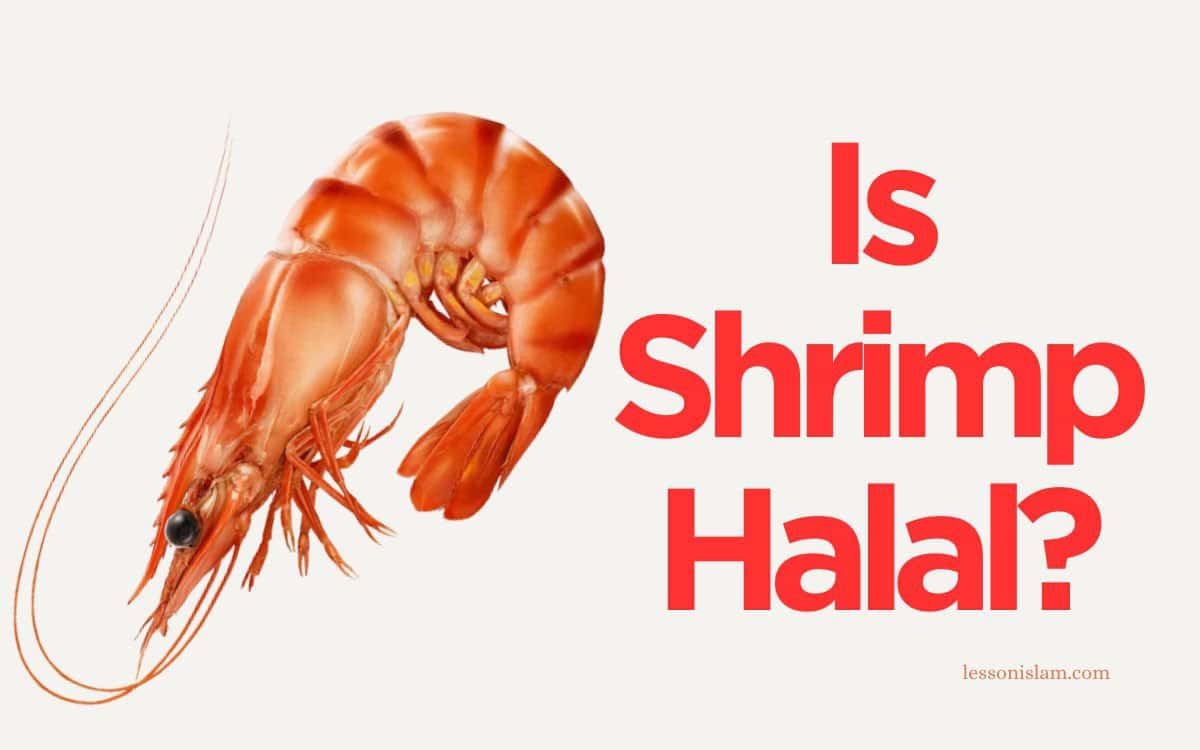Hey there! I’m Fatima from One Stop Halal, and today we’re gonna tackle that burning question many Sunni Muslims ask Is shrimp actually halal? Let’s break it down in simple terms and look at what different Sunni schools of thought say about it.
Quick Answer
For most Sunni Muslims shrimp is considered halal (permissible). The majority of Sunni schools (Shafi’i, Maliki and Hanbali) fully permit eating shrimp. However, there’s some debate within the Hanafi school, with traditional scholars considering it questionable while modern scholars increasingly accept it as halal.
Understanding Sunni Schools’ Views on Shrimp
The Big Three: Shafi’i, Maliki, and Hanbali Schools
These three schools make it super clear
- ✅ Shrimp is 100% halal
- ✅ No restrictions on eating it
- ✅ Consider it part of “sea food” mentioned in Quran 5:96
They base their ruling on:
- The Quran verse: “Lawful to you is what you catch from the sea” (5:96)
- Hadith from Sahih Muslim: “Its water is pure and its dead animals are lawful”
The Hanafi School: It’s Complicated
Here’s where things get interesting. The Hanafi school has different opinions:
Traditional View:
- ❌ Consider shrimp makruh (disliked) or haram
- Reason: They classify it as non-fish because it lacks scales and backbone
Modern View:
- ✅ Many contemporary Hanafi scholars now permit shrimp
- Notable scholars like Mufti Taqi Uthmani say it’s okay to eat
Why Most Sunnis Consider Shrimp Halal
-
Quranic Support
- Clear permission for seafood in Quran
- No specific prohibition of shrimp
-
Historical Context
- Arabs traditionally considered shrimp as sea food
- No recorded prohibition from Prophet Muhammad (peace be upon him)
-
Scientific Benefits
- High in protein
- Rich in omega-3
- Good source of vitamins
Practical Tips for Sunni Muslims
When Buying Shrimp
- Look for halal certification when possible
- Fresh or frozen both okay
- Wild-caught preferred by some scholars
If You’re Hanafi
Got concerns? Here are your options:
- Follow the modern scholars who permit it
- Choose another school’s opinion on this specific issue
- Stick to traditional Hanafi view if you prefer
Cultural Acceptance
Different Muslim regions have different practices:
- Southeast Asia (mostly Shafi’i): Widely eaten
- Gulf States: Commonly consumed
- South Asia (mostly Hanafi): Mixed acceptance
My Personal Take
As someone working at One Stop Halal, I’ve seen how this issue affects many Muslims. While we respect all opinions, the evidence supporting shrimp’s permissibility is pretty strong. Most of our Sunni customers, regardless of their school, feel comfortable eating shrimp.
Common Questions We Get
Q: Does shrimp need to be slaughtered?
A: Nope! Sea creatures don’t need ritual slaughter.
Q: What about restaurants?
A: Generally okay if it’s just shrimp, but watch out for non-halal ingredients in sauces or cooking methods.
Q: Can I eat it if I’m not sure?
A: When in doubt, follow your school’s teaching or consult your local scholar.
Conclusion
For most Sunni Muslims, shrimp is perfectly halal. While there’s some difference of opinion in the Hanafi school, the trend is moving toward acceptance. The key is being informed and making the choice that aligns with your understanding and comfort level.
Remember, Islam is a religion of ease, and differences of opinion are a mercy for the community. Whether you choose to eat shrimp or not, respect others’ choices based on their understanding and scholarship.
Need More Help?
- Check our halal-certified shrimp products
- Consult your local scholar
- Join our community discussions about halal food
Remember to share this article if you found it helpful! And hey, drop a comment below with your thoughts or experiences about shrimp in your Muslim community. We’d love to hear from you!
Would you like me to explain or break down any part of this article further?

The Basics of Is Shrimp Halal or Haram
Islamic dietary laws are rooted in the Quran, Hadith (sayings and actions of Prophet Muhammad SAW), and the interpretations of these texts by scholars over centuries. Foods and beverages are classified into:
- Halal – Permissible
- Haram – Forbidden
- Mashbooh – Doubtful or questionable
The general principle is that everything is Halal except what is explicitly stated as Haram. The Quran outlines certain prohibitions, such as pork and alcohol, but does not provide an exhaustive list of all possible foods, leaving room for scholarly interpretation.
Practical Implications for Muslims
Muslims worldwide follow different schools of thought, which influences their dietary practices. There may be more hesitation towards consuming shrimp in South Asia, where the Hanafi school is predominant. Conversely, shrimp is commonly consumed without issue in regions where Maliki, Shafii, or Hanbali schools are more influential.
